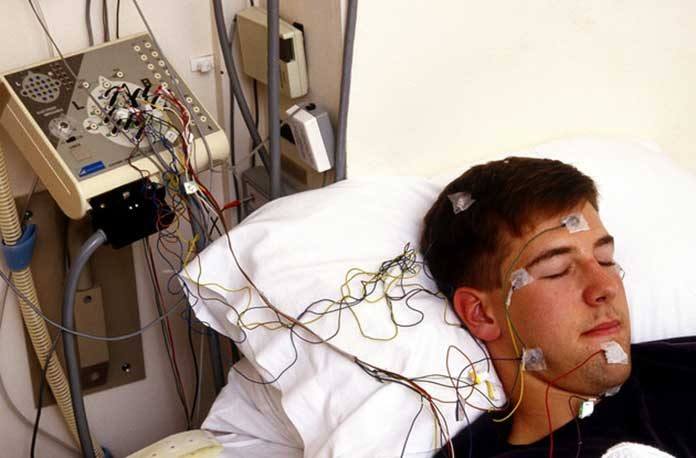Imagine if you could determine a new language by streaming podcasts in your sleeping ears. Unfortunately, this is still a dream. But now, scientists found, they can detect individual’s sleep time memories. Scientists from Paris, Ecole Normale Superieure found, little evidence of sleep time memories even if individual remained unaware.
There were 22 contestants who asked to listen to an audio stream as they fell to sleep. The words were continuously playing in their ears during faint sleep.
After waking up, contestants did not remember the words, which they heard. During a memory test, they even could not tell them separately from new words.
Through electroencephalography, scientists have found that a constant sleep time memories evidence for words presented during sleep.
Although, electroencephalography gathers the brain’s electrical activity. They found that listening to the words after light sleep generates an EEG result.
This EEG result is completely different from that words.
According to scientists, this is for those ambitious people, who wants to exploit on the one-third of their lives spent asleep and who thinks learning while sleeping is the ultimate dream.
The scientists were able to correctly determine whether the participant’s brain had heard a certain word during sleep 55 percent of the time. Even if the contestant had no memory of it.
Neuroscientist Thomas Andrillon said, “Of course, 55 percent accuracy is hardly a reliable crystal ball for mind reading but it’s still above the level of chance.”
“EEG data are only an estimation of brain activity. It is similar to trying to listen in on people’s conversations from outside a bar. You can’t hear much but can pick up on the occasional collective cheer,” he added.
The study leaves evidence behind was authenticate by measuring participant’s confidence level in memory tests. When participants were asked if a certain word was heard by them during sleep, they expressed a bit more confidence in their answer when it was correct yes. It was like if they had an idea about that word.
Thus, this new study shows, some less memory formation is possible. But, it does not mean that you can learn new information in a useful way during sleep.
- Why should we sleep? – Benefits of Sleep
- Individuals with Responsive Partners Experience Lower Anxiety, Better Sleep Quality
Andrillon said, “In another word, the potential benefits of nighttime learning are not worth losing quality sleep over.”
Scientists know that during sleep, the brain stores and analyze information learned all over the day. This nighttime housekeeping keeps the brain too busy to form any new memories of what happens during sleep itself.
